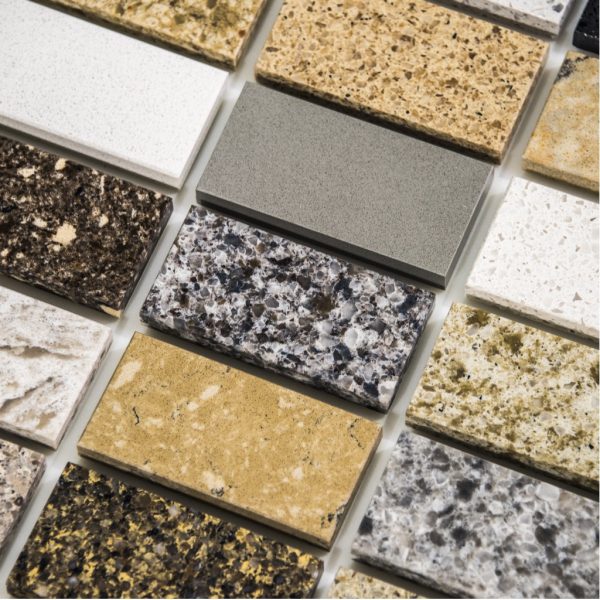The kitchen has become the hub of the home. Most of our daily activities happen there and social gatherings inevitably end up there. For some time now, homeowners have been turning to natural stone for their countertops. Granite and Quartz countertops are leading the industry by combining superb durability with a luxurious look. Granite is well known to many consumers but quartz is becoming more and more popular. Here are some of the pros and cons of each:
Granite pros and cons:
-
The most obvious feature of granite is that it is a one-of-a-kind natural material; each slab will vary from the next and even within the slab itself can be drastic variances. Customers are always advised to pick out and approve the specific slab they want to use for their home. This feature can be good or bad depending on your point of view. If you want something more uniform, granite may not be for you.
- Adding granite can increase the value of your home.
-
It’s sanitary and safe for hot pans.
-
While granite is easy to clean, it needs to be maintained on a regular basis. Granite needs to be sealed to prevent staining since granite is a porous substance. With regular and proper sealing granite will maintain its look forever.
-
While extremely durable, granite can crack if hit by a hard sharp object.
Quartz pros and cons:
- Quartz is also a natural material, however, unlike granite – quartz is not cut as a slab. The quartz is mined and then processed where it is ultimately formed into a slab with coloring pigment and binding agent.
- The quartz is then polished to give the surface a fine sheen. Quartz countertops come in a wider range of color options than granite and offer the consumer a more uniform product.
- Quartz countertops are twice as strong as granite. They are completely non-porous, won’t scratch or crack and withstand just as much heat as granite.
- Since quartz is non-porous it’s very hygienic and you don’t need to worry about sealing it on a regular basis.
- We buy all of our quartz material from Cambria – a very popular manufacturer of quartz countertops for their environmentally friendly product, manufacturing facility, and processing. Not to mention Made in the USA!
- Most of Cambria’s quartz is obtained in North America. This means lower transportation requirements as opposed to other manufacturers who get their quartz overseas. Cambria also utilizes hybrid fleet vehicles decreasing their environmental footprint even more.
- For more information on Cambria’s “Green” features click here.
- While quartz countertops are usually more expensive than granite, more and more homeowners are turning to it because it offers just as many benefits as granite (and even more) without granite’s pitfalls.


